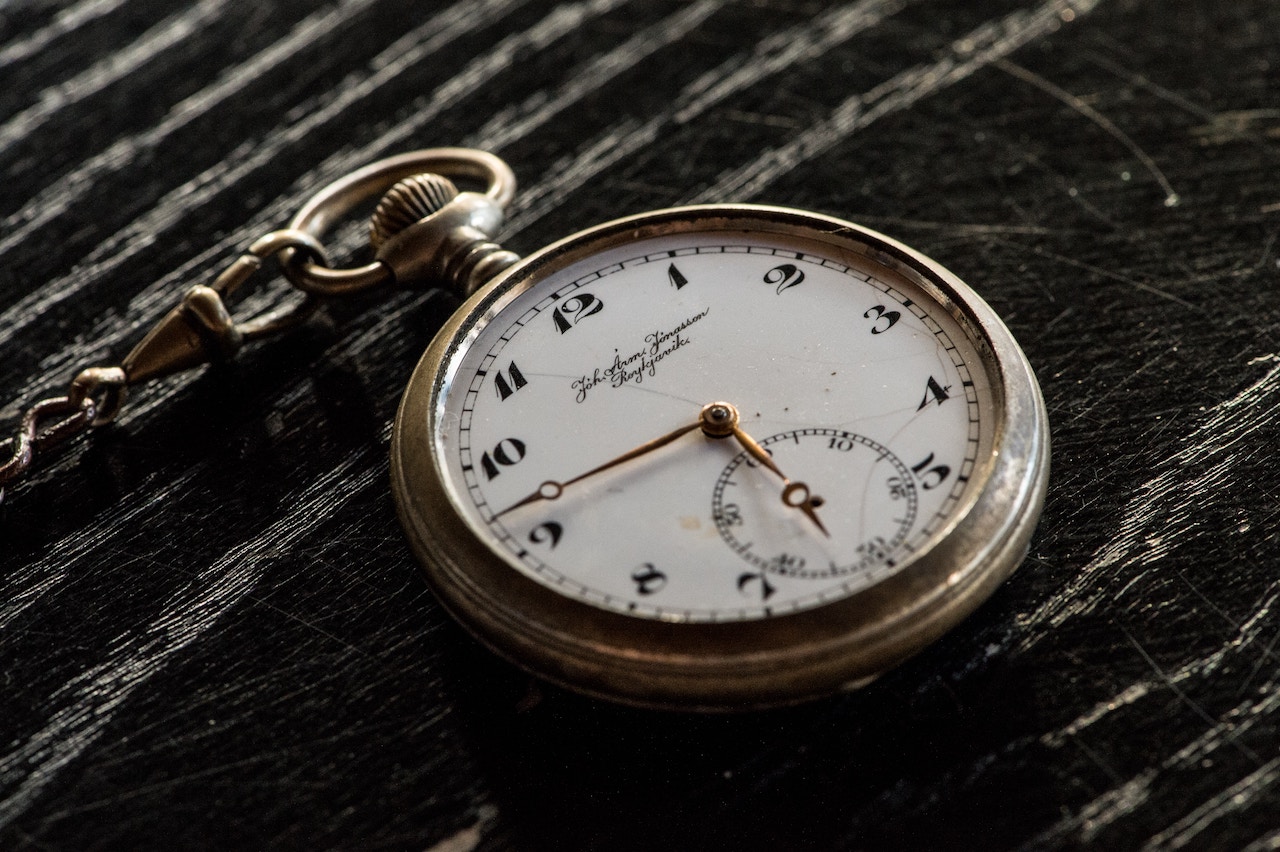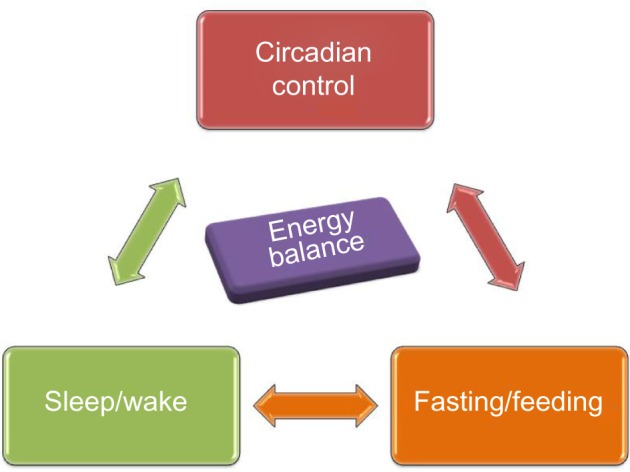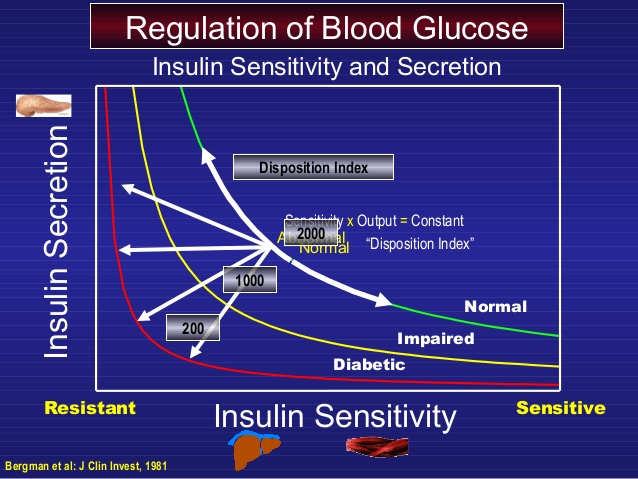Circardian Rythm and Diet

Most people focus strictly on what they eat. However, there is an equally important component to diet and lifestyle that is not considered that much: Timing! After all, eating a kebab at 2AM feels different from 2PM.
Summary
- Don’t miss sleep
- There should be at least three hours (ideally more) time between finishing your last meal and going to bed
- Don’t eat fatty and large meals in the evening
- When intermittent fasting, you’ll get more benefit from skipping dinner than breakfast
Even if we don’t know what time it is, every cell in our body has its own clock. The so-called intrinsic circadian timekeeping system, or circadian rhythm, influences not only our sleep. It also modulates many other systems, such as body core temperature, metabolism, and nutrition. Therefore, every diet needs to account for our circadian system.
The relationship between circadian rhythm and our behaviour, however, is not one-directional.
The circadian system sets the rhythm through numerous pathways that regulate many processes, from proteins to hormones throughout all our body, as the circadian genes are expressed in virtually every cell. At the same time, it reacts to inputs coming from our rate of activity, light exposure or food intake to maintain a balance.

Interdependence of the circadian control, sleep/wake cycle and fasting/feeding
The interaction of internal and external processes is an ongoing research topic. This research relies on systems thinking and benefits immensely from the recent advances in Bio 2.0, such as genomic data and molecular technologies.
What I find especially appealing, is that results are often directly applicable - for you and me. Let’s look at some of them.
Diet influences the circadian rhythm
Studies have shown that diet influences the circadian system in many ways. A well-known example is a high-fat diet.
It’s no surprise, that eating a high fat meal, makes us sleepy. It’s not only the digestive stress that causes this, though. In fact, a high-fat diet turns the molecular clock forward, too (by 4h in mice).
Other nutrients, such as caffeine or alcohol affect the circadian system as well. They can change hormone secretion, body temperature, or our ability to sleep.
Circadian rhythm influences the metabolism
The molecular clock influences our metabolism. Ideally, we align our food intake to our body’s daily rhythms. The problem is that oftentimes we unknowingly work against it. Knowing how and when certain things are regulated upwards or downwards can help improve that situation and our wellbeing.
Obviously, I can’t summarise the complete literature on this topic. There is a good overview in the Cell journal by Gad Asher that I recommend reading.
Here are some of the things I find interesting:
Morning:
- Our body’s insulin response and glucose tolerance respond more efficiently to a morning meal than an evening meal. As insulin drives a lot of weight gain, eating early is better than late, when it comes to controlling weight.
- If meals are consumed at circadian phases when melatonin is high, such as the evening, then glucose processing may be impaired, and mistimed meals may lead, over extended periods of time, to metabolic disorders, obesity, and other diseases.
- Tolerance for carbohydrates is more efficient during the biological morning than evening (not clear how fat and protein processing behaves)
Evening
Epidemiological evidence suggests, that we’re not built for eating late. Late eaters have higher incidences of medical claims than normal eaters (source) and higher BMI (source).
One driver seems to lie in how we process food. I can remember studying mitochondria during high school. Since then, a lot new exciting insights were uncovered about our little cellular energy plants.
The research shows that we should eat at least three hours before going to bed. Doing so will prevent cell damage caused by excess energy.
- Mitochondria inside our cells are generating energy in form of ATP from the food we take in through the mitochondrian respiratory chain.
- Because the energy to drive ATP synthesis in mitochondria ultimately originates from the oxidative breakdown of food molecules, the phosphorylation of ADP to form ATP that is driven by electron transport in the mitochondrion is known as oxidative phosphorylation.
- It involves several enzyme complexes within the mitochondrial inner membrane, collectively known as the electron transport chain.
- This process naturally leaks electrons. These free electrons are highly reactive and generate O2 and H2O2. They both damage mitochondria, cells and also the DNA.
- When we eat and go to sleep right away, we have excess fuel inside the mitchondria. This happens because the circadian system also affects mitochondria and inhibits oxidative phosphorylation process during nighttime (source).
- The inhibited mitochondria cannot process the food as fast as during daytime. This leads to excess fuel in the cell and increases electron leakage, which is something we’d want to limit as much as possible.
As a sidenote: Certain supplements can help us limit damaging electron leaks and sustain the mitochondrian health. I am taking the vitamin B complex, Coenzym Q10, PQQ and Magnesium.
Missing sleep
Missing sleep is a serious thing. It eradicates effects of so many things that we loose sleep over. Not only do we feel groggy in the morning and feel a reduced willpower, but we also eat more, eat worse, gain weight and might even die younger.
Several studies show that sleep loss reduces insulin sensitivity, disposition index (the relationship between insulin sensitivity and insulin secretion and marker of diabetes risk) and increases fat tissue.

Additionally, sleep loss triggers hormonal effects that lead to overeating and weight gain:
- Increase in levels of ghrelin: Reduction of energy expenditure and increase of appetite
- Decrease in levels of leptin: Reduction of signal for fullness
- Reduces levels in Glucagon like peptide 1: Reduces its effect to increase satiety, reduce hunger and reduce food intake
- Increase in levels of Peptide YY: Reduction of effect that decreases appetite
Sleep loss has also been suggested to influence the choice of food, increasing preference for high-fat, high-calorie food further facilitating weight gain.
When we sleep normally, our body uses more fat for it’s energy needs. During sleep deprivation subjects were shown to burn only 1/3 of the fat in comparison to normal sleep.
I find it quite exciting that timing meals has such a large effect on staying healthy and productive. When researching diets, the literature often doesn’t seem conclusive. However, when it comes to the circadian system, we are looking at a causal relationships in pathways or gene expression. While this research topics moves forward quickly, I like that there’s already a lot to take away and apply on a day to day basis.
Further Reading
- http://onlinelibrary.wiley.com/store/10.1111/nyas.13188/asset/nyas13188.pdf;jsessionid=6195CA6F8CB02C643F9E7BAEA12624EB.f04t03?v=1&t=jbsd3kxz&s=652c99a06225b33e343dcb4a2f597648bf5f8468
- https://www.sciencedaily.com/releases/2010/10/101004211637.htm
- https://www.ncbi.nlm.nih.gov/pmc/articles/PMC4708875/
- https://articles.mercola.com/sites/articles/archive/2015/09/21/intermittent-fasting-calorie-restriction.aspx
- https://www.jscimedcentral.com/Cell/cell-3-1014.pdf
Feature photo by Kjartan Einarsson on Unsplash